JoinData is an independent data platform set up to give farmers control over their data. FrieslandCampina, Agrifirm and CRV, among others, are members of JoinData as farmers' cooperatives. All dairy farmers in the Netherlands use JoinData via the Annual Nutrient Cycle Assessment. But, are they going to use JoinData for other data flows as well? And what are the pros and cons of data sharing? Which apps and innovations do farmers really need? Director Sener Celik talks to various farmers in the Netherlands to answer these questions.
Emiel Stam has a dairy farm with 140 cows and a farm shop in Spijk, a small village in Gelderland,. It looks like paradise, but Stam went through a nightmare. Because of an ill-maintained milk robot, 49 cows died. Stam: ‘Innovation and digitization are great things, as long as everything goes well. But if something goes wrong, you will notice how unequal your power relation with the supplier or dealer is right away.’ How does Stam, after a bitter experience, feel about the digitization of agriculture and sharing data? He has an interesting talk about this with Jos Tholen from data platform JoinData.
Jos: Farmers these days are often referred to as ‘data farmers’. You also use a milk robot, a fertilizer robot and a feeding robot. Do you know that term?
Emiel: It suggests that farmers never set foot inside their stables anymore. That is not the case, but we do spend more and more time at the computer, to register and analyze all the data. A lot of farmers hate that. But during the court case against my milk robot dealer, I was happy to have done it. Without the data as proof, I would have had nothing.
Jos: According to you, what are the most important obstacles within a data-driven farming business?
Emiel: If everything goes well, robots provide more animal welfare, sustainability and efficiency. But if something goes wrong – like the robot not working properly – then you’re at an enormous disadvantage with your dealer or supplier, because they have access to all of your data. They are the experts, you are a layman. When I signed the maintenance contract for my milk robot, I thought: that’s all taken care of then. But no. In my case, the data showed that the robot wasn’t working, but the dealer did nothing. And when I tried to prove that it malfunctioned, the files and backups from this period turned out to have been erased. This is a big problem for farmers.
Jos: JoinData was created to improve the position of farmers. At the moment you buy something – a tractor, robot, business management system or something like that – you sign over all of your data in the supply conditions. If you don’t sign, you can’t buy what you need. We want to end this dependency.
Emiel: It’s always about the question: who owns the data. The supplier says: We do, because we made the robot. The farmer says: I do, because I produce the milk.
Jos: Ownership of data is a difficult issue. That is why we deal with the question: who is allowed to use the data? And, above all: with what purpose? We have developed an application for this, My JoinData. Farmers can log in here. Here they can see all at once what kind of data they produce, which suppliers use the data and for what purpose. You used to lose control of your data by signing the general terms and conditions, but nowadays we make it specific and transparent.
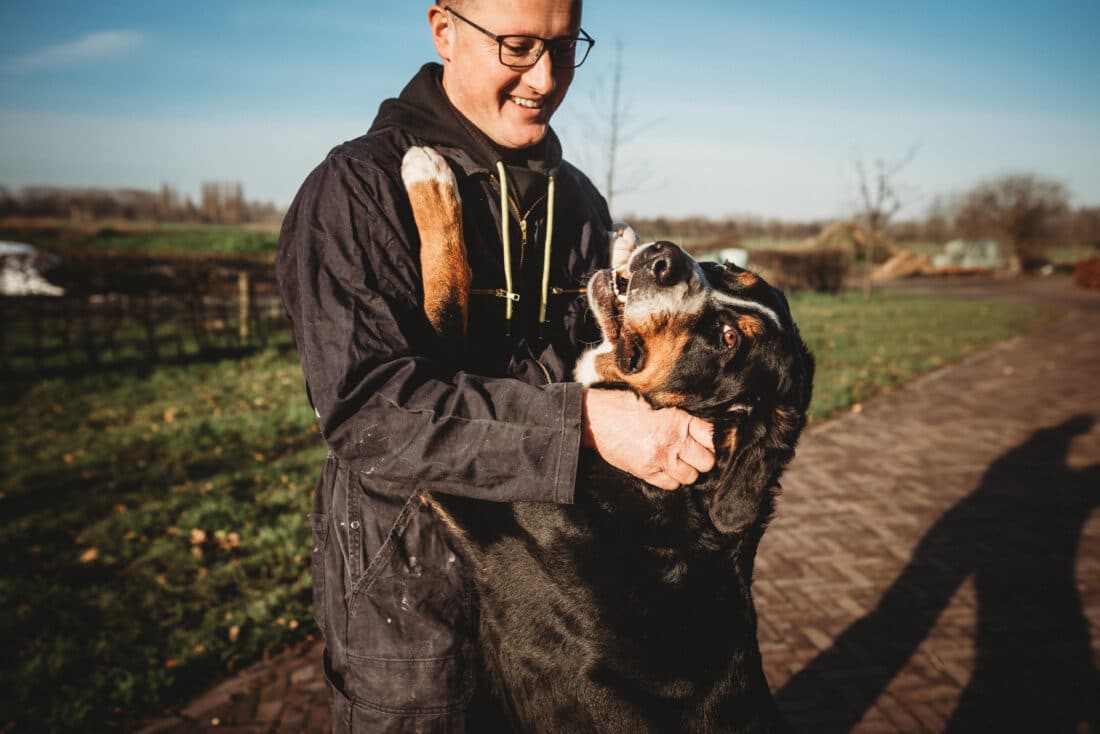
Who is Emiel Stam
BornBorn 31-12-1980 in Zevenaar
EducationAtheneum, HAS Den Bosch
CareerOwner Dairy Farm Hof zum Walde
Other functionsDirector Stichting Actief Spijk
Emiel: So you can share data per segment via JoinData? For example: the data from the robot cups, but not how much milk I produce?
Jos: Yes, it can be that specific. If My JoinData shows you that your tractor manufacturer is using all of your data, you can simply say: I will switch off this authorization. Then your tractor manufacturer will probably call you to ask: what are you doing? And you can say: I’m okay with you using certain data, but not everything. What they can and can’t access, and for what purpose: this has to be discussed. The farmer needs to be given a say in this. The farmer at the wheel, we say.
Emiel: How does this work if I’ve already signed the general terms and conditions?
Jos: If you and your supplier are both signed up with JoinData, you will get the control back. The supplier can’t just say: I’ll use everything, thank you.
Emiel: Why would a supplier give up their position of power?
Jos: It’s a current trend in the agricultural sector. Companies see that they also need data from other companies if they want to keep innovating. Which means that they also need to share their own data. Furthermore, the General Data Protection Act (GDPA) dictates transparency about purpose limitations. With JoinData, these companies are compliant.
Emiel: My general terms and conditions mentioned that the dealer would get access to my data and robot for maintenance purposes and for innovation of their own product. But in fact, they were using this access to conceal that they did bad maintenance. With methods like screenshots and an ICT specialist I managed to retrieve part of the data, so that the judge was convinced of badly executed maintenance. How can I be sure that suppliers who are signed up with JoinData will comply with my authorizations? How do I know that they will really use my data to – for example – improve the robot, and not to see which parts last long so that they can replace them with parts that break more easily, so that they can sell more? Can this be monitored?
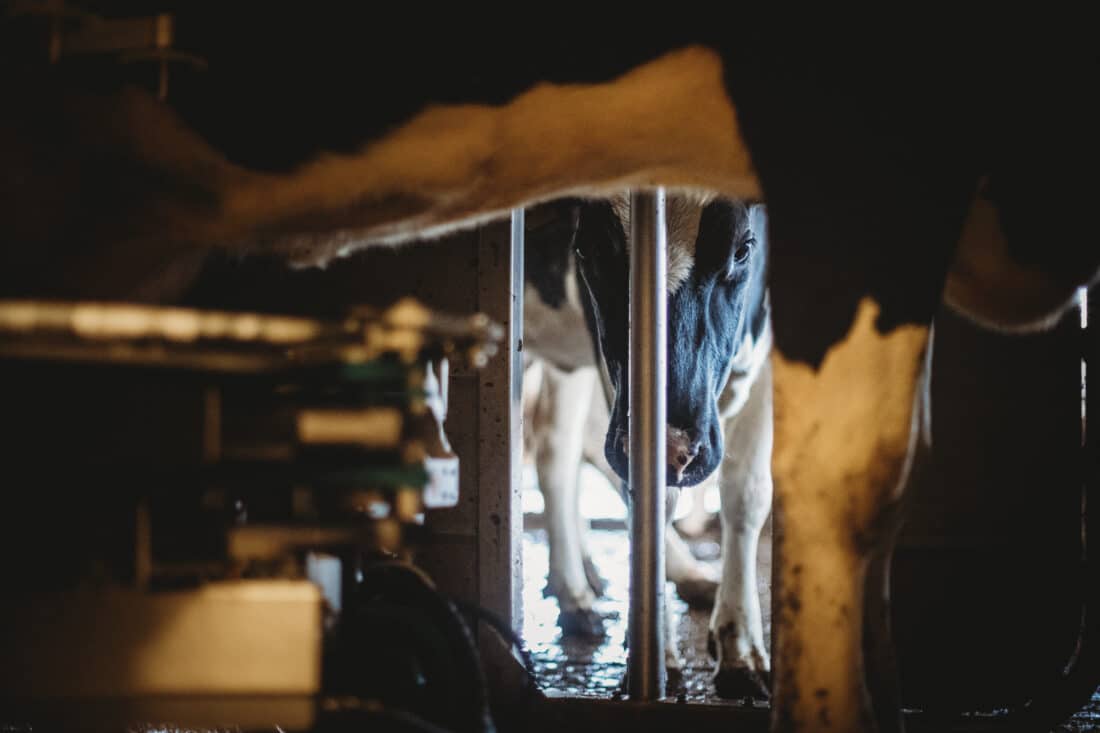
Jos: It can probably be monitored, but that is not our role. You can record and digitize all you want, but in the end you have to be able to trust that the person you’re dealing with will do what they say. In the end, suppliers want their clients to be satisfied and to keep doing business with them.
Emiel: Once I sign up with JoinData, will my data be in your cloud?
Jos: No, we don’t store data ourselves. We are just an access gate that can open or close, depending on the authorizations. Is that something you need, a vault with all your data?
Emiel: Yes, and an app where I can view it all. Now I have to upload my backups to my milk robot in order to read them, but it makes the robot overheat. So it’s great that I have data, but there’s not a lot I can do with it.
Jos: JoinData is not just for farmers and suppliers, but also for new parties, startups, who will be developing these kinds of apps and products. Via JoinData, they can request authorization from you, which you will then be able to evaluate. In the end, we want to improve the position of farmers, and for practical apps to be developed to make your business operations easier.
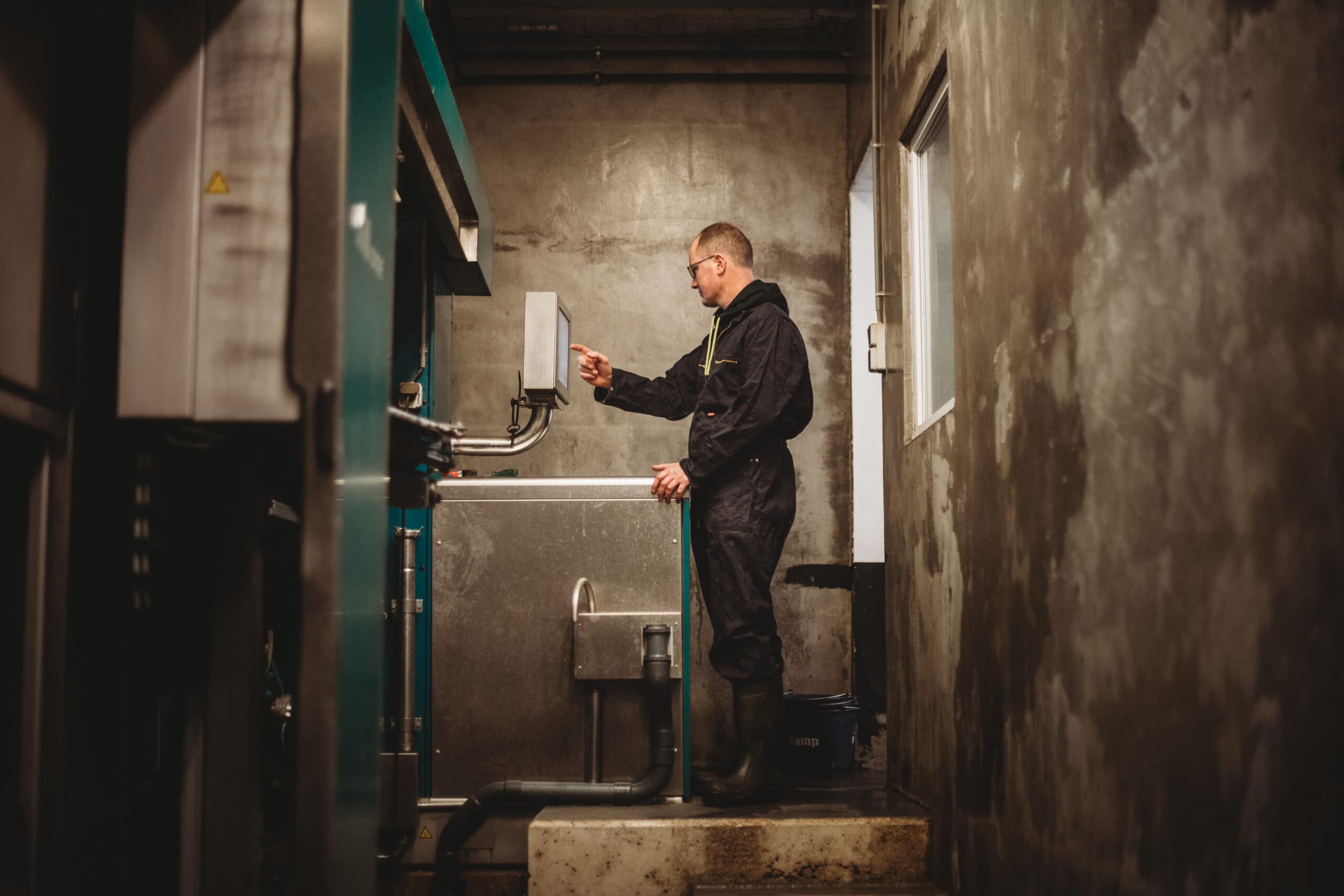
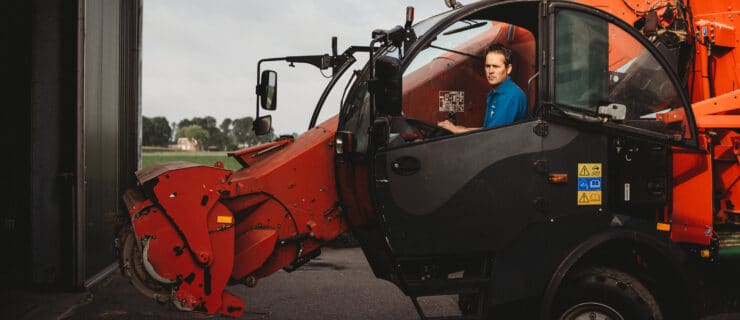
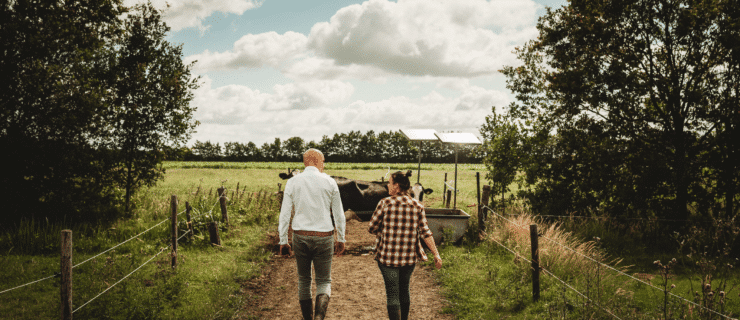
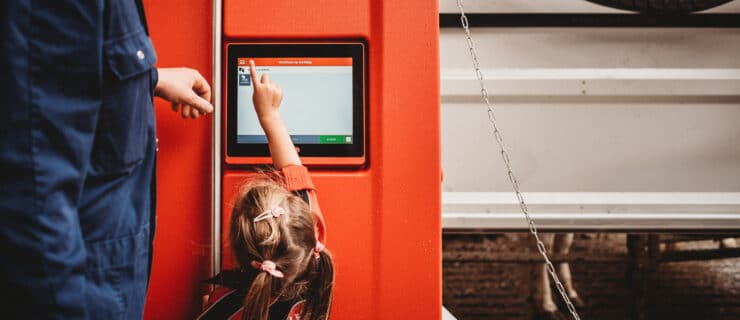
The milking robot collects data and sends it to the milking robot company. The feed supplier, breeding farm, the tractor company and various other parties. The farmer always gives separate authorizations for this, which means they have no overview. What happens to all that data? That is unknown.
JoinData wants to bring all those separate data streams together and give farmers back control. No more separate authorizations, but one authorizations platform on My JoinData. JoinData credo is: The farmer at the helm.
If all data streams are accessed through one place, other companies will be able to develop smart apps in the future to help farmers with their business operations. Our goal is: more convenience and lower costs by bundling data.